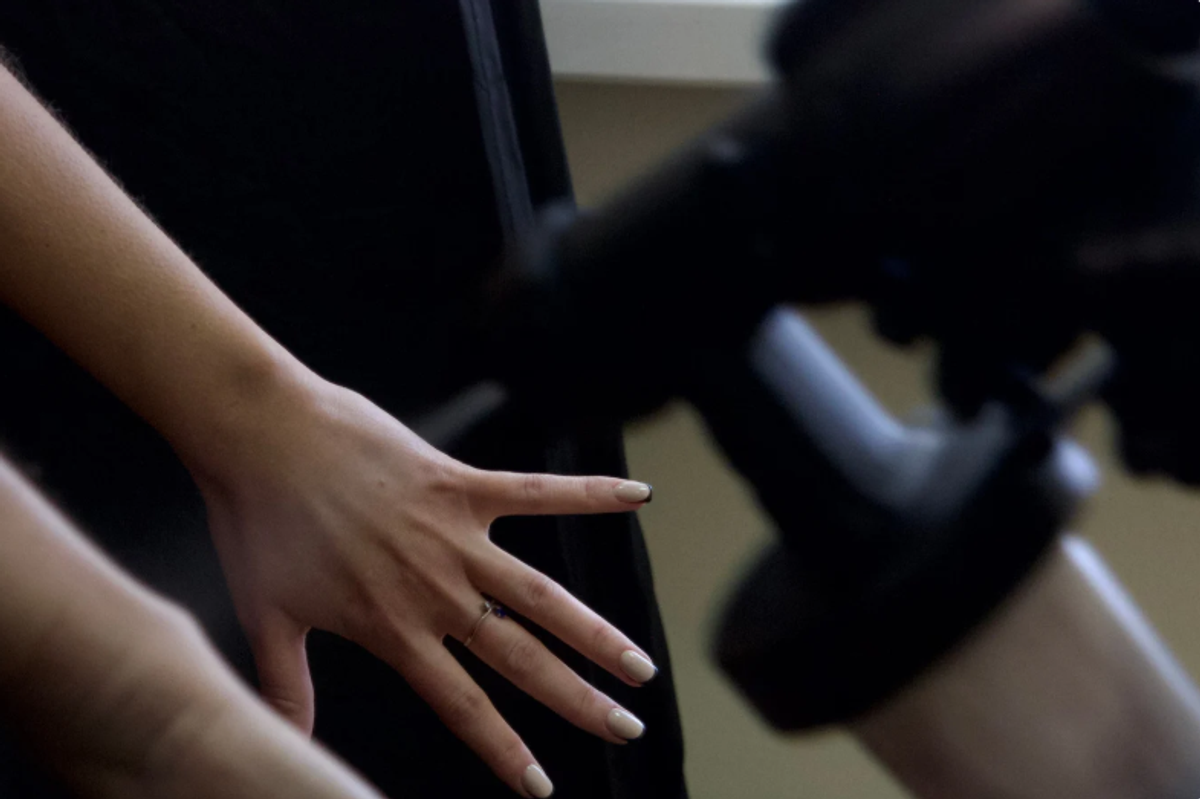Experts share 8 budget hacks people can implement in one day to stop wasting money
It's easier than it might seem.

A man fans out his money.
These are tough times for many. With prices going up and jobs often hard to come by, some might wonder how they can save for the future—or, at the very least, stop feeling like they're throwing money away.
The good news is that there are simple money-saving tips that actually work. In fact, they can be implemented instantly to get you on the road to cutting costs on a daily basis.
- Vincent Chan gives money saving tips. www.youtube.com, Vincent Chan
STOP "SUBSCRIPTION CREEP"
Vincent Chan, economist and ex–Wall Street expert, has quite the following on YouTube where he makes videos designed to help guide people into smarter financial choices. One such tip is to cancel (or never subscribe to) a service with recurring automatic charges. (Of course, there will be certain things to which you do actually want to subscribe.)
"Nearly half of people who start free trials forget to cancel and then otherwise get charged for it. Otherwise known as ‘subscription creep.’"
But, he asks, "What can you do?" There are solutions. "The next time you pull the trigger for a trial or recurring purchase for a discount, immediately shout, 'Hey Siri, create a calendar event for six days and call it “cancel my oatmeal subscription.”’"
He also adds that if you forget to cancel your trial subscription, "there's a 97 percent chance that the company will still refund you, if you let customer service know you just forgot."
CUT UNNECESSARY INSURANCE
In CNBC Editor Elizabeth Gravier's recent article, she spoke with debt-relief attorney Leslie Tayne, who had all kinds of expertise on how to stop wasting money. One such idea was cutting insurance that you don't need (and obviously keeping the ones you do).
Tayne shares, "This is one that often goes overlooked because many often think the more insurance, the better. But certain forms of insurance are just not necessary for most people and can lead you to spend unnecessarily."
She gives examples of insurances like "identity theft" (most credit cards and banks have that built into your account), "rental car" (most car insurance will cover an accident), and "travel" (she instead suggests using a travel credit card which covers trip cancellation and lost luggage).
PAY OFF MORE THAN MINIMUM PAYMENT
Many of us know this, but when it's time to pay a credit card bill, it can be enticing to pay the lowest amount necessary—aka the minimum payment due. But logically, one is just accruing interest, and obviously, the higher the balance, the more you're paying just to have a balance.
Tayne suggests, "If the interest rate is in the double digits, it might be a good idea to pay more than the minimum to eliminate overall debt more quickly."
BUY USED CARS INSTEAD
How many times have we heard how quickly cars depreciate the minute you drive them off the lot? My pal, comedian Greg Warren, has a great joke that "old guys" who sit around talking about cars claim they depreciate "as soon as your dive it off the lot by 90 percent."
Yahoo! Finance quotes billionaire businessman Warren Buffett in an article by Josephine Nesbit. She writes, "According to Kelley Blue Book, most new vehicles have a 20% drop in value in the first year. So instead of buying a new car, Buffett prefers to buy used vehicles at reduced prices."
Buffett is quoted as saying, "The truth is, I only drive about 3,500 miles a year, so I will buy a new car very infrequently."
STOP EXTENDED WARRANTIES
Speaking of cars (and many other items), extended warranties are a waste of money, according to Chan. Though he notes, "There are some things that I think extended warranties are worth it for. But for most things, you can skip extended warranties."
He notes a Consumer Reports survey which found, he says, "about half the people who do buy extended warranties never use them for repairs. And those that do use them often find that the cost of the warranty is about the same or more than the repair would have cost in the first place."
He also points out the fine print: "Many extended warranties are also full of exclusions. They've got 'gotchas' or they require you to jump through 17 hoops to qualify for them."
But he gives a list of three things you can do alternatively: "Double-check if your credit card offers free extended warranties for things you buy with the card." He notes that for items that aren't super expensive, the warranty isn't necessary, as it's just as easy to replace the item should it break. And lastly, "Take that money that you would have spent on a warranty and stash it into a CD or high-yield savings account, so on the off chance that something DOES break, you can just use that money—and the money that you gained—to pay for the fix."
PLANNING AHEAD
Gravier notes this tip, especially when traveling. Just a little extra pre-planning is all it takes. She shares Tayne's idea to "Look up gas prices online to find the cheapest prices. Gas stations very close to highway entrances and exits often charge much more than gas stations further away."
Also, perhaps, "Pay checked bag fees on budget airlines, such as Frontier or Spirit, in advance. Paying to check bags after booking the flight can be significantly more expensive."
She also advises to skip third-party providers: "Book any service or travel plans directly through the provider, rather than through a third party." Tayne is quoted as sharing, “Third parties may allow you to compare rates easily but may charge other fees during the booking process."

STAY IN
While not everyone seeks as simple of a life as Warren Buffett, cutting spending on expensive “out on the town” meals is a great way to save. Nesbit notes, "Buffett has a very simple diet and doesn’t like to go out much."
In fact, she says, in Alice Schroeder's biography The Snowball: Warren Buffett and the Business of Life, he's quoted as saying, “I like eating the same thing over and over and over again. I could eat a ham sandwich every day for fifty days in a row for breakfast."
Again, that's not everyone's style. And it's certainly more than okay to treat yourself when the mood strikes—just be mindful that you're not living beyond your means.
STOP SPENDING EMOTIONALLY

So many of us do it. When having a bad day, “put item in cart” seems like a lovely Band-Aid. But what Tayne calls "emotional spending" could be furthering debt issues, and this is a big one.
Gravier writes, "Of course, there are going to be times when you want to treat yourself and buy something new—that’s human nature. But emotions change all the time, and you shouldn’t hand over the wheel or let them pull you in too many directions. That’s a surefire way to drain your resources."
She quotes Tayne, who insists, "If emotional spending puts you into debt or throws your budget off, that’s not okay."
But there are solutions. Gravier suggests, "Instead of yielding to every emotional impulse, try to spend on small things or something specific that you’ve budgeted for ahead of time so you don’t dig yourself in a hole. Always check the return policy, especially if you love to shop final sales."
She further adds to avoid temptation by "removing shopping apps" and "unsubscribing from retailer emails." Your bank account will thank you in the long run.



 Questions are more effective than facts when it comes to disagreements.
Questions are more effective than facts when it comes to disagreements. Asking people to elaborate leads to more open-mindedness.
Asking people to elaborate leads to more open-mindedness. Curiosity can help people get closer to consensus.
Curiosity can help people get closer to consensus. 
 A woman gets a spray tan applied to her skin.
A woman gets a spray tan applied to her skin.

 The Ocracoke light station.Kari Nousiainen/
The Ocracoke light station.Kari Nousiainen/ The Ocracoke ferry.Kari Nousiainen/
The Ocracoke ferry.Kari Nousiainen/
 A woman reading a book.via
A woman reading a book.via A woman tending to her garden.via
A woman tending to her garden.via